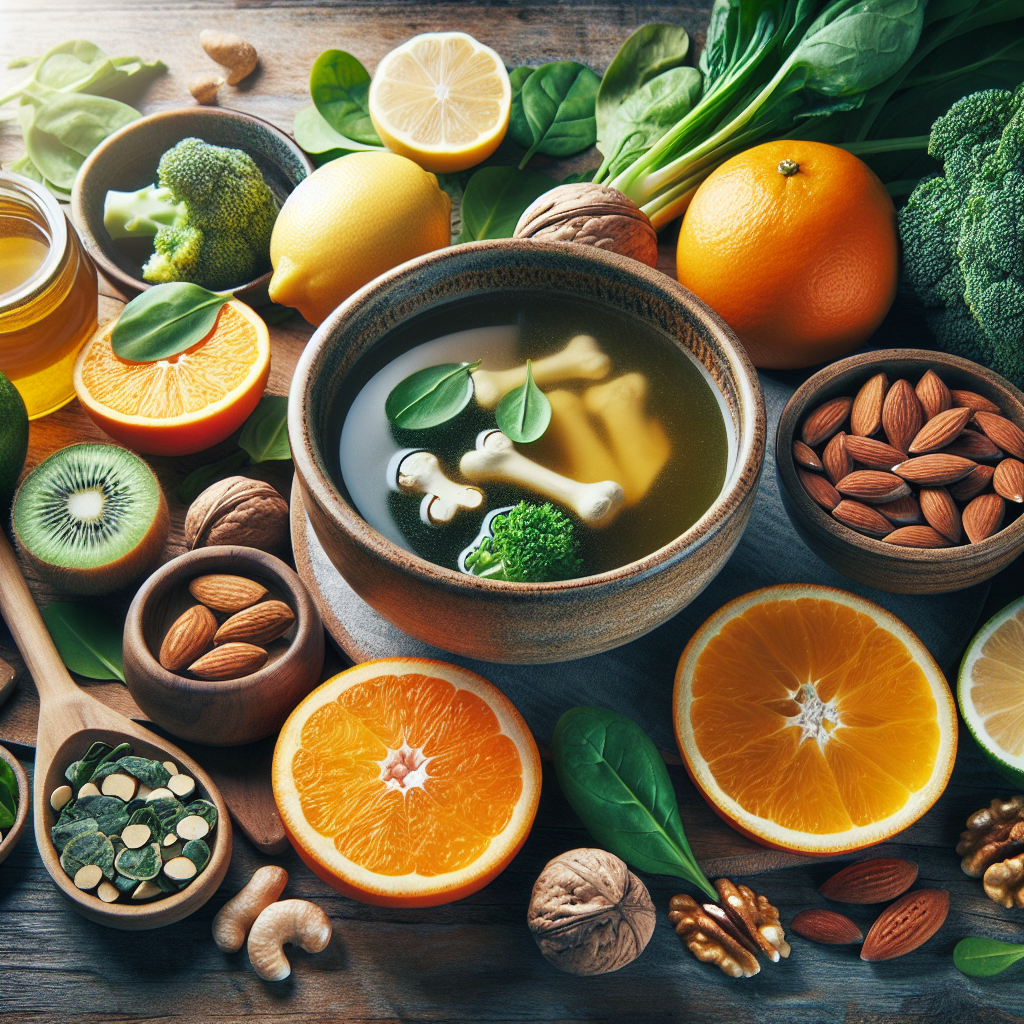Connective tissues, including tendons, ligaments, and cartilage, play a crucial role in maintaining joint health and overall mobility. While supplements are popular, a diet rich in organic, collagen-boosting foods can naturally enhance tissue strength and flexibility. Here’s how you can support your connective tissues through nutrition.
Why Connective Tissue Health Matters
Connective tissues provide structure and stability to your body. Tendons connect muscles to bones, ligaments link bones together, and cartilage cushions joints. Over time, wear and tear, inflammation, or nutrient deficiencies can weaken these tissues, leading to stiffness, pain, or injuries. A diet rich in collagen-supporting nutrients can help maintain their integrity.
Key Nutrients for Connective Tissue Health
To strengthen connective tissues, focus on these essential nutrients:
- Collagen: The primary structural protein in connective tissues.
- Vitamin C: Crucial for collagen synthesis and antioxidant protection.
- Protein: Provides amino acids needed for tissue repair.
- Omega-3 Fatty Acids: Reduce inflammation in joints.
- Sulfur: Supports collagen and keratin production.
Top Organic Foods for Stronger Connective Tissues
Incorporating these organic foods into your diet can naturally boost collagen production and support joint health.
1. Bone Broth
Bone broth is a powerhouse of collagen, gelatin, and amino acids like proline and glycine, which are essential for repairing tendons, ligaments, and cartilage. Opt for organic, grass-fed bone broth to avoid additives and maximize nutrient content.
2. Citrus Fruits
Oranges, lemons, and grapefruits are rich in vitamin C, which stimulates collagen synthesis. Vitamin C also protects connective tissues from oxidative stress caused by free radicals.
3. Leafy Greens
Spinach, kale, and Swiss chard provide vitamin C, magnesium, and antioxidants that support collagen production and reduce inflammation. These greens also contain sulfur, which is vital for connective tissue health.
4. Berries
Blueberries, strawberries, and raspberries are packed with antioxidants like anthocyanins, which help combat inflammation and protect collagen from damage. Their high vitamin C content further enhances tissue repair.
5. Wild-Caught Fish
Salmon, mackerel, and sardines are excellent sources of omega-3 fatty acids, which reduce joint inflammation and improve mobility. They also provide protein for tissue maintenance.
6. Nuts and Seeds
Almonds, walnuts, flaxseeds, and chia seeds offer healthy fats, zinc, and protein, all of which contribute to collagen synthesis and joint lubrication.
7. Garlic and Onions
These sulfur-rich foods support the production of collagen and other structural proteins. They also have anti-inflammatory properties that benefit joint health.
8. Eggs
Eggs provide protein and sulfur, along with vitamin D, which helps regulate calcium absorption and supports bone and joint strength.
9. Avocados
Rich in healthy fats and vitamin E, avocados help protect connective tissues from oxidative damage while promoting skin and joint health.
10. Grass-Fed Meat
Organic, grass-fed beef and poultry supply high-quality protein and collagen-supporting amino acids. They also contain more omega-3s than conventionally raised meat.
Additional Tips for Optimal Connective Tissue Health
Beyond diet, these lifestyle habits can further enhance your joint and tissue strength:
- Stay Hydrated: Water helps maintain the elasticity and lubrication of connective tissues.
- Exercise Regularly: Strength training and flexibility exercises promote circulation and tissue repair.
- Reduce Sugar Intake: Excess sugar can weaken collagen fibers through glycation.
- Get Enough Sleep: Tissue repair primarily occurs during deep sleep.
Final Thoughts
Supporting your connective tissues doesn’t require expensive supplements. By incorporating organic, nutrient-dense foods into your diet, you can naturally enhance joint health, flexibility, and overall mobility. Prioritize collagen-boosting foods and a healthy lifestyle to keep your tendons, ligaments, and cartilage strong for years to come.
